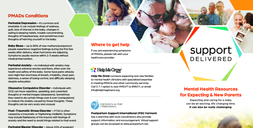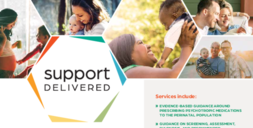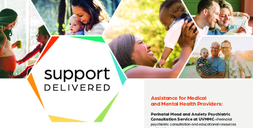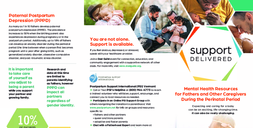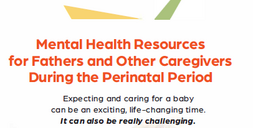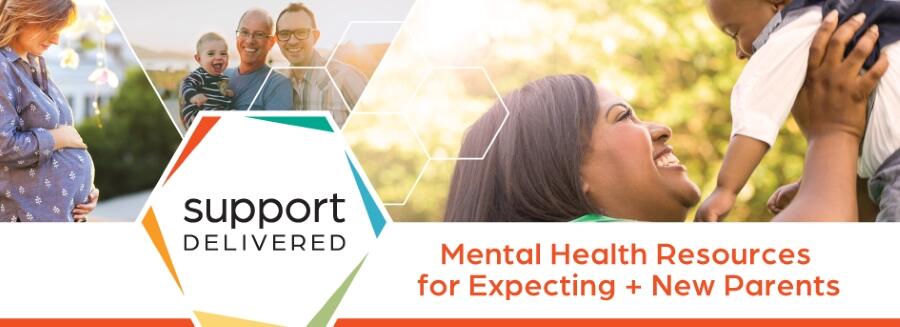
What is Support Delivered?
- An education and awareness campaign about perinatal mood and anxiety disorders (PMADs).
- An umbrella of coordinated supports and services available to Vermonters.
Perinatal mood and anxiety disorders (PMADs) are a group of symptoms that can occur during pregnancy and the postpartum period, causing emotional and physical concerns that make it hard to enjoy life and function well.
PMADs are common, treatable, and are the leading complication of childbirth. About 1 in 4 (25%) of pregnant or postpartum Vermonters experience PMADs, and this can have serious impacts on parental health and well-being as well as children’s development. Find information below on PMADS, as well as resources across the state providing support to individuals struggling with PMADs.
Watch this video for more about perinatal mental health.
Need Help Now?
- If you or someone you know is thinking about suicide, dial 988 for the 988 Suicide and Crisis Lifeline (formerly known as the National Suicide Prevention Lifeline) or text VT to 741741 for the Crisis Text Line. Trained counselors are available 24/7.
- Call or text the National Maternal Mental Health Hotline (open 24/7) at 1-833-TLC-MAMA (1-833-852-6262) for free, confidential support before, during, and after pregnancy.
- If you are concerned about your or a loved one's safety or need emergency medical services, call 9-1-1 or go to the closest emergency room.
Help Me Grow Vermont connects expecting and new families to mental health clinicians who are experts in treating PMADs and other community services. This is not a crisis line.
Their hours are Monday – Friday from 8 am until 5 pm. For support, you can:
- Call 211, option 6
- Text HMGVT to 898211
- Email [email protected]
You can also enter your information in the form below, and a Help Me Grow Care Coordinator will contact you.


